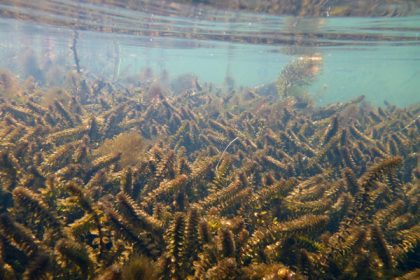
Residents around Indian Lake in Worcester, Massachusetts, are raising concerns after a spike in fish deaths following the recent application of aquatic herbicides. These chemicals, intended to control the spread of invasive weeds, work by killing the plants outright. But once the plants die, they begin to decompose in the water—a process that consumes dissolved oxygen. As oxygen levels drop, fish and other aquatic life can no longer survive, resulting in visible fish kills along the shoreline.
This chain reaction—herbicide application, plant decay, and oxygen depletion—has become a growing concern for communities trying to balance weed control with aquatic health. Indian Lake residents voiced frustration over poor communication from city officials, especially after seeing and smelling the aftermath of the July 2025 treatment. This incident underscores the environmental risks of chemical plant control and the importance of considering non-chemical alternatives like mechanical weed harvesting.
